On a fine day, views along The Old Ghost Road stretch across the winding Mokihinui River and over alpine vistas, valleys of tussock and dense native forests. The 85km West Coast trail, once a drawcard for fortune seekers during the Gold Rush and now a popular tramping/mountain biking route, runs through some of New Zealand’s most untouched wilderness.
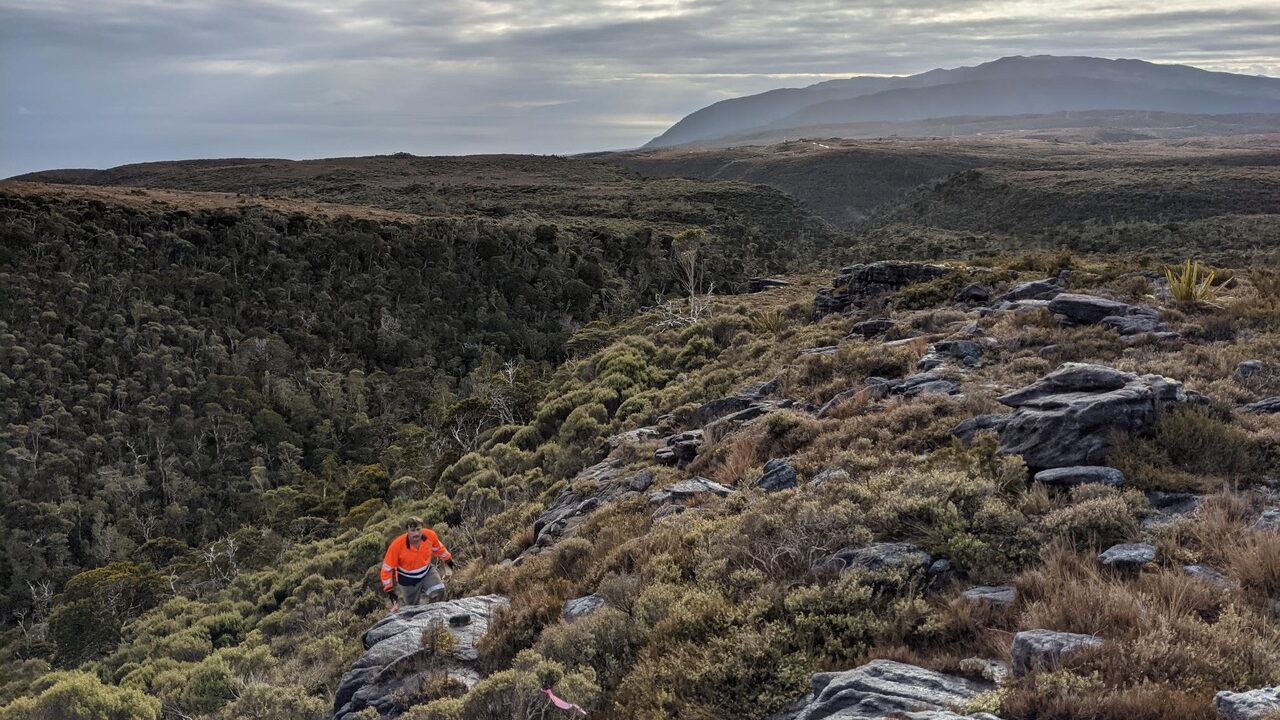
On this mid-June morning, however, the view is shrouded by thick fog. Rain is bucketing down and a biting wind hints of snow on the way. None of this fazes Kieran, a predator control apprentice doing some digger work, who ducks inside one of the huts dotted along the trail for a quick phone chat on a flaky signal.
Four months ago Kieran was hired by environmental solutions company MBC as part of the Predator Free Apprenticeship Programme. Having experienced a stint of unemployment, he’d decided to apply right away. “They advertised for a back-country worker. I’d done some possum control before and thought it was right up my alley.”
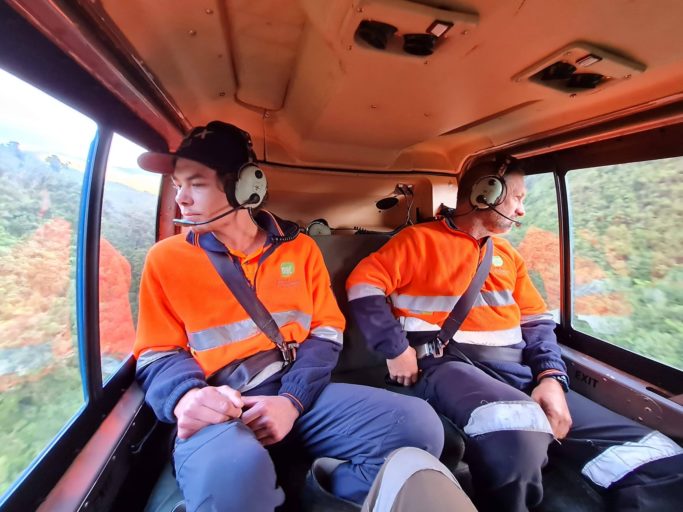
The Predator Free Apprenticeship Programme kicked off in late 2020, as a result of Jobs for Nature funding from the Department of Conservation, and currently has 48 apprentices placed with a range of host organisations around New Zealand. The aim of the programme is to grow the number of predator control operators by pairing apprentices with experienced professionals. The long-term goal is to help inspire and foster future leaders in the industry.
Restoration planting work, weed and pest control, monitoring and ecological surveys (including native species such as the Powelliphanta snail, one of the world’s biggest snails and one of our most threatened invertebrates) are key parts of MBC’s business. Much of Kieran’s time is spent on The Old Ghost Road, checking the vast network of traps targeting rodents and mustelids (mainly stoats and weasels – DOC handles the possums).
Despite the variable weather and rugged terrain – access to remote areas is generally via motorbike if there’s a track, or helicopter if there isn’t – Kieran thrives on back-country work. The job comes with plenty of rewards: along the trail are tomtits, kākā, a recovering population of whio (blue duck), kererū, kārearea, weka and, occasionally, great spotted kiwi.
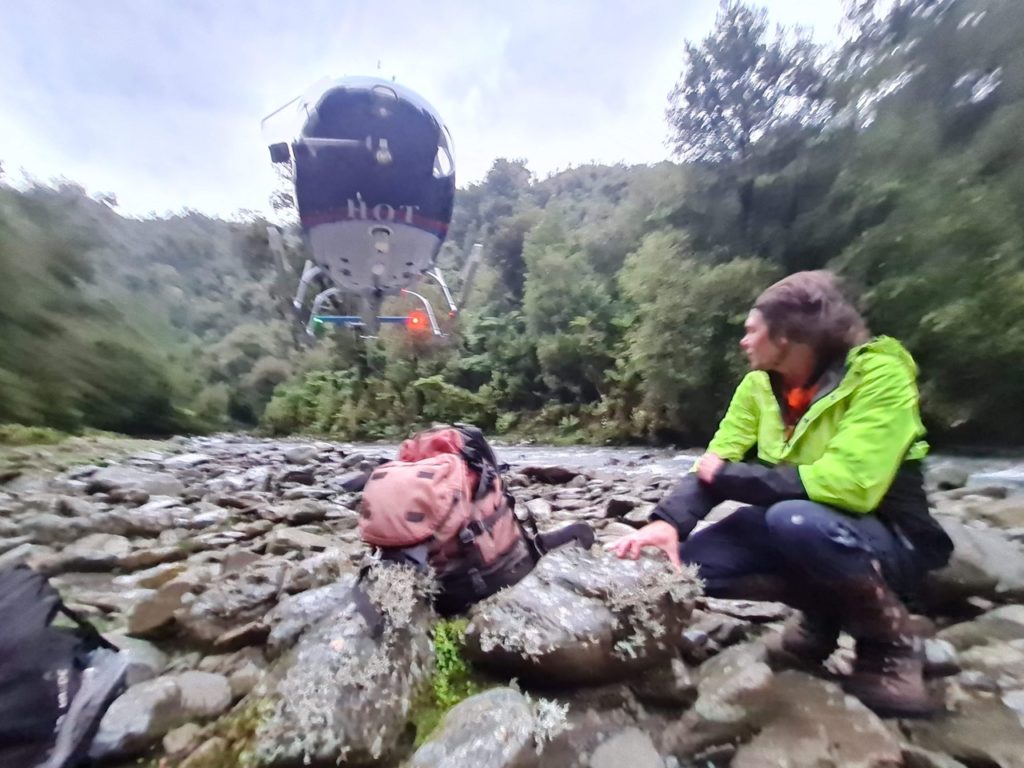
“Seeing all the whio is pretty cool, seeing the results of our hard work … getting rid of all the bloody rats!”
Thanks to PFNZ’s Apprenticeship Programme, MBC has recruited three apprentices so far (Kieran was the second to be hired). MBC director Adam Walker says the programme enables them to not only bring in new people, but also retain good workers.
“They’ve got to be bush capable. It can be a big risk to bring new people on board that don’t have the experience – sometimes they find out the hard way that it’s not for them. Because Kieran already had some back-country experience, he was a good fit.”
Community connections
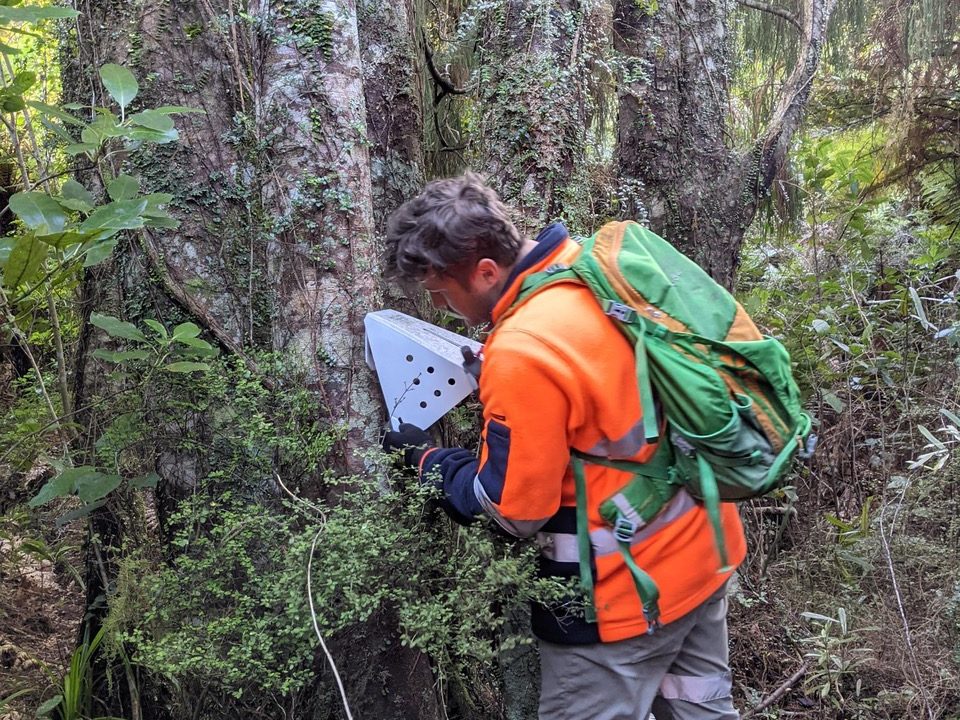
The two-year programme has a much wider impact than just creating jobs. For example, apprentices are required to spend 10% of their paid time helping community groups in the area. This provides learning opportunities while also supporting local projects.
Adam Walker says the programme means MBC can provide the “full journey” of training a new employee from the ground up. Their third apprentice, Shaun, had no previous experience but will progress from basic bush skills to higher-level operations, working alongside more experienced staff and local groups such as the Mokihinui-Lyell Backcountry Trust, which governs The Old Ghost Road.
“You might think apprentices would just be helping with small community groups, but here we’re talking about $500,000-plus conservation projects.”
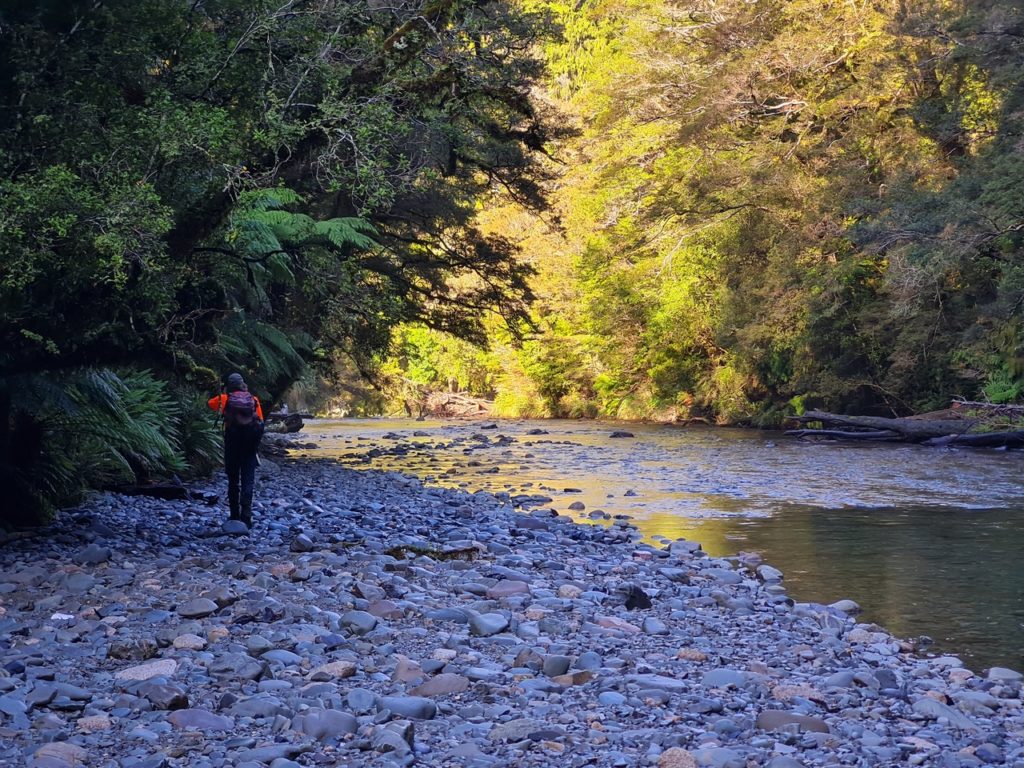
Apprentices are also given the opportunity to complete the Level 3 NZ Certificate in Pest Operations. Next week, as part of his apprenticeship, Kieran will head off on a five-day course as he works towards his certificate. Adam says this is something the company wouldn’t previously have been able to offer new employees. “It’ll be exciting to see what comes out of that.”
MBC’s three apprentices (two males and one female, all in their 20s) come from different backgrounds, with varying levels of experience. This creates a balanced team as everyone shares their skills and knowledge. The older hands guide the rookies, mentoring the next generation of conservationists.
The programme provides job security for the apprentices, financial support for the hosts, and long-term benefits for the industry. Adam thinks the programme’s intent is already being achieved. “We can hire more people, especially going into winter, and it takes the pressure off. Normally it would be a big risk for us to take on new people at this time of year.
“If the government is trying to get more skilled people into the industry… this definitely ticks all the boxes.”

